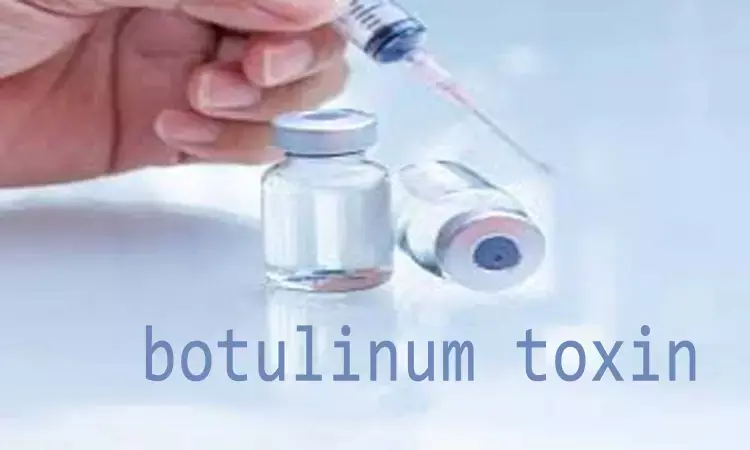- Home
- Medical news & Guidelines
- Anesthesiology
- Cardiology and CTVS
- Critical Care
- Dentistry
- Dermatology
- Diabetes and Endocrinology
- ENT
- Gastroenterology
- Medicine
- Nephrology
- Neurology
- Obstretics-Gynaecology
- Oncology
- Ophthalmology
- Orthopaedics
- Pediatrics-Neonatology
- Psychiatry
- Pulmonology
- Radiology
- Surgery
- Urology
- Laboratory Medicine
- Diet
- Nursing
- Paramedical
- Physiotherapy
- Health news
- Fact Check
- Bone Health Fact Check
- Brain Health Fact Check
- Cancer Related Fact Check
- Child Care Fact Check
- Dental and oral health fact check
- Diabetes and metabolic health fact check
- Diet and Nutrition Fact Check
- Eye and ENT Care Fact Check
- Fitness fact check
- Gut health fact check
- Heart health fact check
- Kidney health fact check
- Medical education fact check
- Men's health fact check
- Respiratory fact check
- Skin and hair care fact check
- Vaccine and Immunization fact check
- Women's health fact check
- AYUSH
- State News
- Andaman and Nicobar Islands
- Andhra Pradesh
- Arunachal Pradesh
- Assam
- Bihar
- Chandigarh
- Chattisgarh
- Dadra and Nagar Haveli
- Daman and Diu
- Delhi
- Goa
- Gujarat
- Haryana
- Himachal Pradesh
- Jammu & Kashmir
- Jharkhand
- Karnataka
- Kerala
- Ladakh
- Lakshadweep
- Madhya Pradesh
- Maharashtra
- Manipur
- Meghalaya
- Mizoram
- Nagaland
- Odisha
- Puducherry
- Punjab
- Rajasthan
- Sikkim
- Tamil Nadu
- Telangana
- Tripura
- Uttar Pradesh
- Uttrakhand
- West Bengal
- Medical Education
- Industry
Botulinum toxin safe and effective for spasmodic dysphonia treatment: BOISS Study

Japan: Botulinum toxin injection into laryngeal muscles is safe and effective for the treatment of spasmodic dysphonia (SD), finds a recent study in the European Journal of Neurology.
Botulinum toxin injection is an accepted standard treatment for SD and this study provides additional data for safety and efficacy of this treatment, note the authors.
SD is a rare form of focal dystonia that occurs in the absence of phonatory organ paralysis or other structural pathology. It is characterized by involuntary intermittent spasms of the intrinsic laryngeal muscles. BT injection has been standard treatment for spasmodic dysphonia. However, only a few high‐quality clinical studies have appeared, and BT is used off‐label in most countries.
Masamitsu Hyodo, Kochi University, Nankoku, Japan, and colleagues performed a multicenter, placebo‐controlled, randomized, double‐blinded, parallel‐group comparison/open‐label clinical trial (the BOtulinum toxin Injection therapy for Spasmodic dySphonia [BOISS], study).
The study aimed at obtaining approval for BT therapy for SD in Japan. This is the first clinical trial based on Good Clinical Practice (GCP) guidelines to be conducted on BT worldwide.
The study enrolled twenty‐four patients (22 with adductor SD and two with abductor SD). The primary end point was the change in the number of aberrant morae (phonemes) at 4 weeks after drug injection.
Key findings of the study include:
- In the adductor SD group, the number of aberrant morae at 4 weeks after injection was reduced by 7.0 ± 2.30 (mean ± SE) in the BT group and 0.2 ± 0.46 in the placebo group.
- The improvement persisted for 12 weeks following BT injections.
- The strain element in GRBAS scale significantly reduced at 2 weeks after BT treatment.
- The VHI and VAS scores as subjective parameters also improved. In the abductor SD group, one patient responded to treatment.
- Adverse events included breathy hoarseness (77.3%) and aspiration when drinking (40.9%) but were mild and resolved in 4 weeks.
"Botulinum toxin injection was safe and efficacious for the treatment of SD. Based on these results, BT injection therapy was approved as an SD treatment in Japan.," concluded the authors.
The study titled, "Botulinum toxin injection into the intrinsic laryngeal muscles to treat spasmodic dysphonia: A multicenter, placebo‐controlled, randomized, double‐blinded, parallel‐group comparison/open‐label clinical trial," is published in the European Journal of Neurology.
DOI: https://onlinelibrary.wiley.com/doi/10.1111/ene.14714
Dr Kamal Kant Kohli-MBBS, DTCD- a chest specialist with more than 30 years of practice and a flair for writing clinical articles, Dr Kamal Kant Kohli joined Medical Dialogues as a Chief Editor of Medical News. Besides writing articles, as an editor, he proofreads and verifies all the medical content published on Medical Dialogues including those coming from journals, studies,medical conferences,guidelines etc. Email: drkohli@medicaldialogues.in. Contact no. 011-43720751


